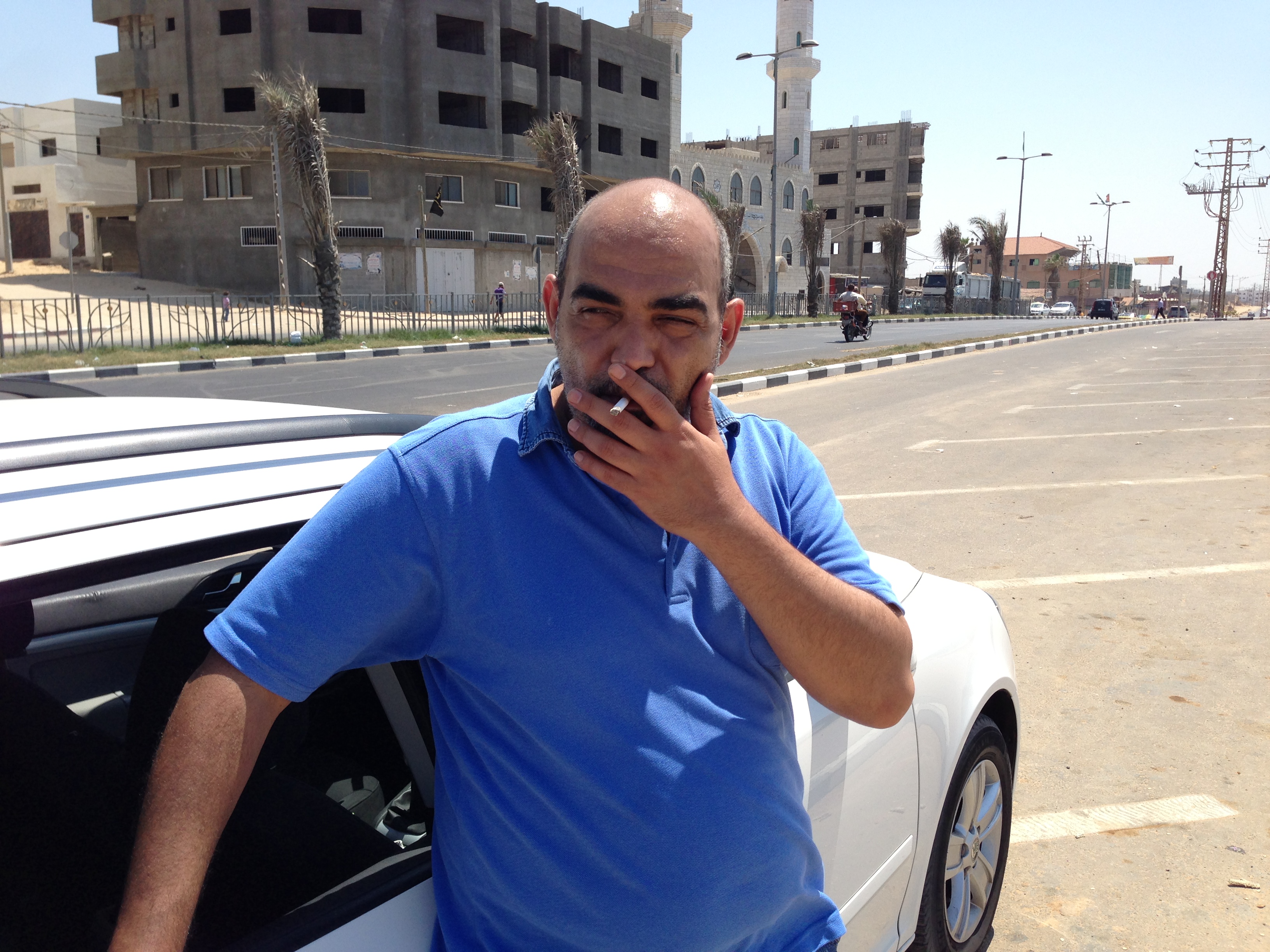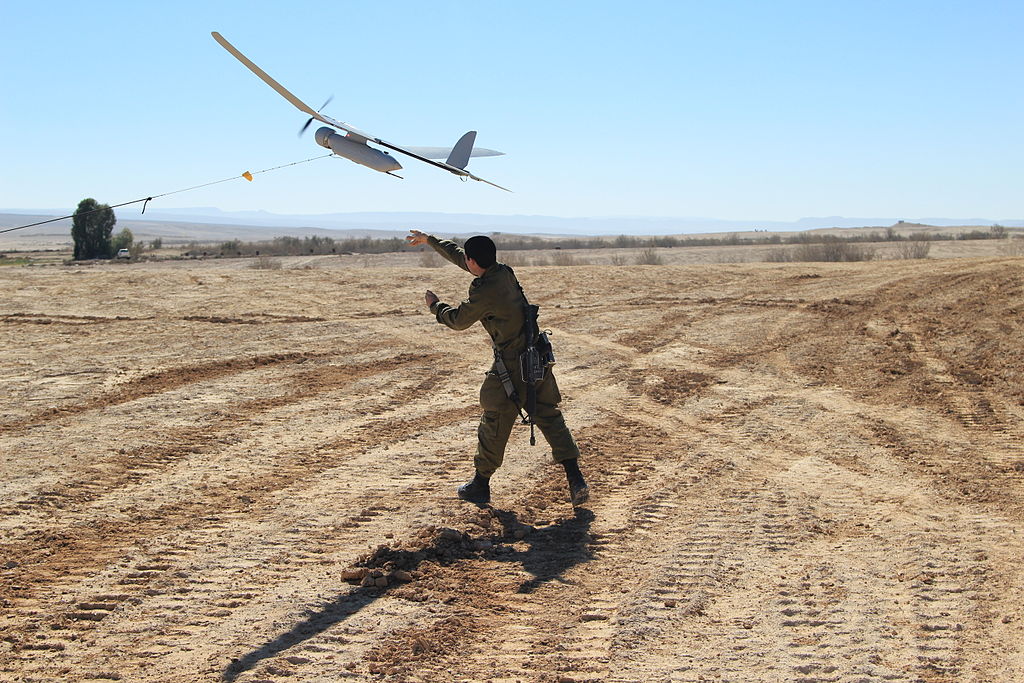
Journalist Ahmed Abuhamda is haunted by the sounds of his children screaming in the night.
It was November 2012, and Israel had just begun carrying out air strikes against militant targets throughout the Gaza Strip. Abuhamda's young children, Mustafa and Mohammad, could hear the sounds of the blasts from the family's eighth-floor apartment in downtown Gaza City and see the fire and smoke from the explosions. They would call their father into their bedroom, jump into his arms, and beg him not to leave. "Daddy, stay with us," he recalls them saying. "Make the booms stop."
It was, Abuhamda told me during a recent reporting trip to Gaza City, the worst feeling of his life.
"There is nothing more painful than knowing that your family is terrified and you can't do anything about it," he said. "My wife and I are used to the wars. But my little babies, what did they do deserve this? How can I force them to live like this?"
Abuhamda has decided that he can't and won't. Abuhamda is one of the most experienced journalists in Gaza and has spent years working for Western news organizations like the Wall Street Journal, NPR and the McClatchy wire service. A jovial chain smoker with a small potbelly, Abuhamda speaks fluent, unaccented English and seems to know almost everyone in the teeming city. When I visited Gaza City in mid-August, he managed to easily set up interviews with the press-shy families of two Hamas militants who had been killed by Israeli drone strikes. Now he wants to leave.
Abuhamda is a fixer, one of the most important, if little-known, parts of a foreign correspondent's life overseas. All fixers help arrange interviews and translate the conversations themselves, but they are particularly important in war zones, where they can use their local knowledge to provide early warnings about people and places to avoid and situations that have abruptly become so dangerous that it's time to immediately leave.
I have reported from war zones around the world and seen first-hand how risky it would be to work without a good fixer. I was returning from a visit to northern Iraq one day in early 2005 when masked gunmen set up a roadblock and began searching individual cars. I had a full beard and was dressed in Iraqi clothing, but they would have known I was an American the instant I opened my mouth. My fixer, Haqqi, didn't panic. He instead managed to defuse the situation by offering the militants cigarettes and persuading them that he was simply rushing one of his cousins — me — back to Baghdad to visit my sick mother. The gunman did a cursory search of the car and waved us forward.
In northern Mali this spring, my fixer Ibrahim drove to my hotel on his scooter at 1 a.m. after French troops called in to alert us that they had intelligence showing that militants were planning to raid the building to kidnap as many Western journalists as they could. Ibrahim drove me to his mud-walled house and had me sleep on a bed on the roof, where it was coolest. He refused to accept any additional money.
We work so closely with our fixers overseas that it's easy to forget that they have lives of their own, and that the very things that typically bring us to their countries — war and political instability — are the things that often make their own lives unbearable.
Abuhamda lives in a crumbling apartment building that overlooks a pair of faded billboards with large photos of dead Hamas fighters. Its walls are pockmarked by shrapnel holes and blackened from the fires that raged nearby after an Israeli air strike in 2009. Before the fighting broke out, Abuhamda had purchased three sets of clothing for the baby his wife was carrying. After one particularly heavy exchange, he found the clothing on the street in front of the building covered in dirt and ash. "I kept thinking, 'what if that had been my son?'" he remembers.
His children have made it through Gaza's wars without suffering any physical injuries, but he believes they have suffered severe psychological ones. They have nightmares so vivid that they shoot up in their beds, trembling. They cower whenever they hear loud noises. They wet themselves, something Abuhamda and his wife attribute to their anxiety and fear.
Abuhamda believes that staying in Gaza will only make these problems worse. He has barred his boys from playing with other children who live in their building because the boys play a game called "Arabs and Israelis" that involves pelting each other with small rocks. "Those kids swear and use dirty words," Abuhamda says. "They see the fighters on TV and they want to be just like them, but they're only 4-years-old."
Abuhamda's work life is just as difficult. He has been followed and arrested by the Hamas government on multiple occasions after he helped Western journalists write stories the Hamas officials didn't like. "If you talk about the government, they will come after you," he told me.
The time has come, he believes, to find a new home. Abuhamda was born in Egypt and had strongly considered moving back there, but the country's ongoing violence has persuaded him that it might not be any better than Gaza. He now dreams of settling his family in the U.S., a country he fell in love with during a recent trip to San Francisco.
"I cried when I saw children playing in the park in San Francisco," he told me. "My kids could never do that here, not in a million years. And I want them to be able to."






